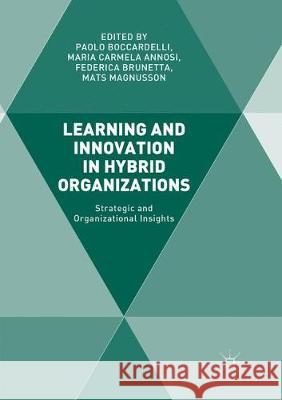Learning and Innovation in Hybrid Organizations: Strategic and Organizational Insights » książka
topmenu
Learning and Innovation in Hybrid Organizations: Strategic and Organizational Insights
ISBN-13: 9783319873190 / Angielski / Miękka / 2018 / 303 str.
Kategorie:
Kategorie BISAC:
Wydawca:
Palgrave MacMillan
Język:
Angielski
ISBN-13:
9783319873190
Rok wydania:
2018
Wydanie:
Softcover Repri
Ilość stron:
303
Oprawa:
Miękka
Wolumenów:
01











